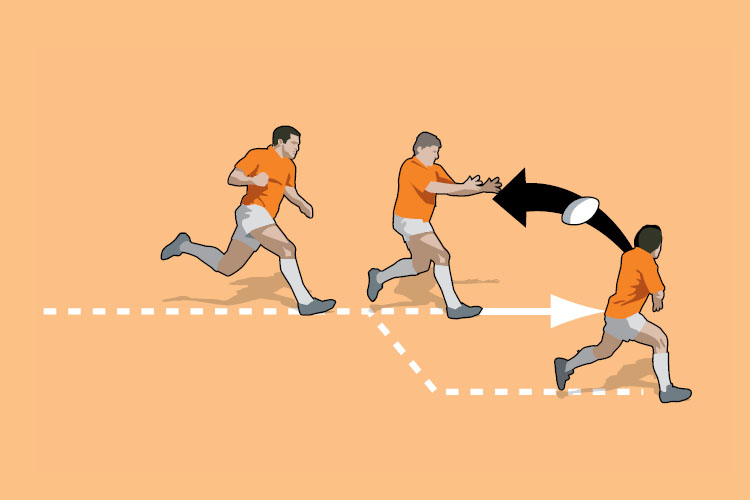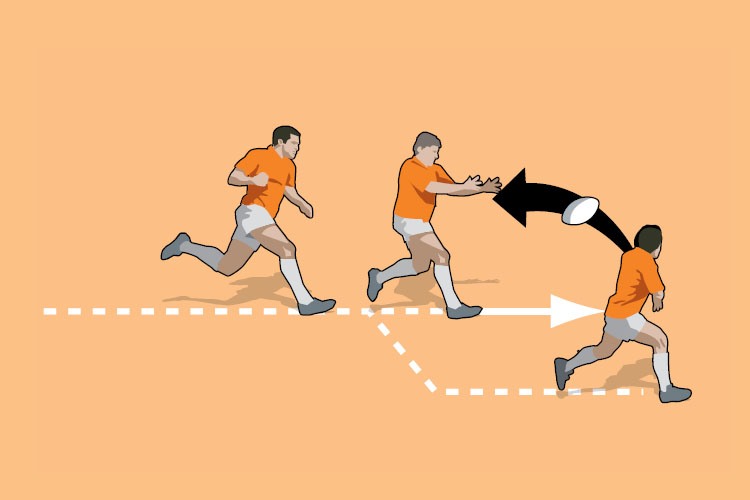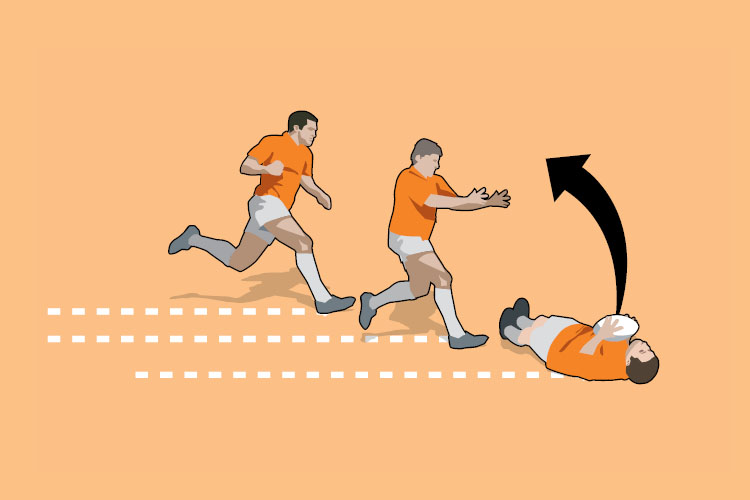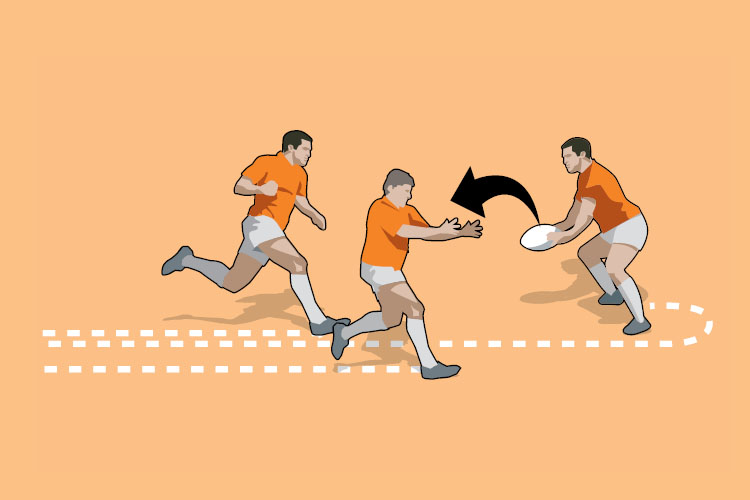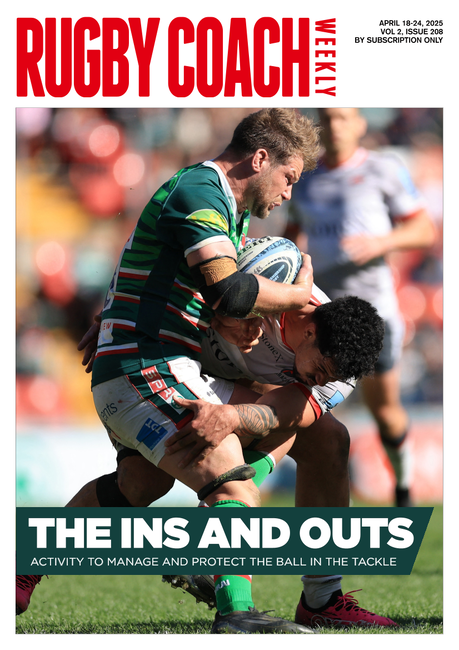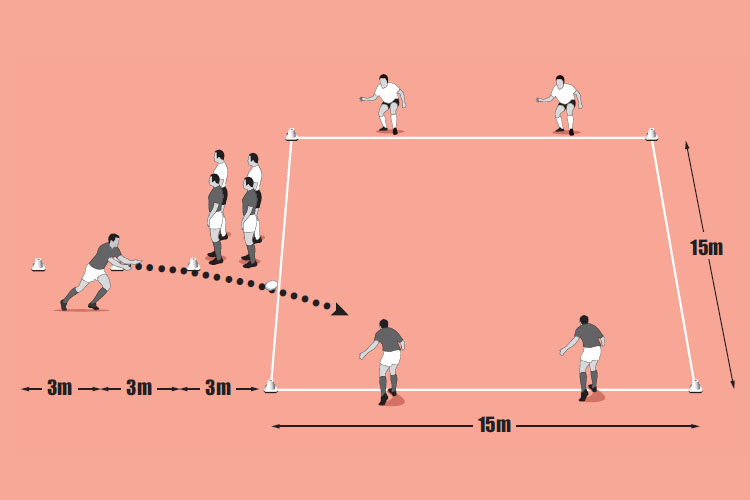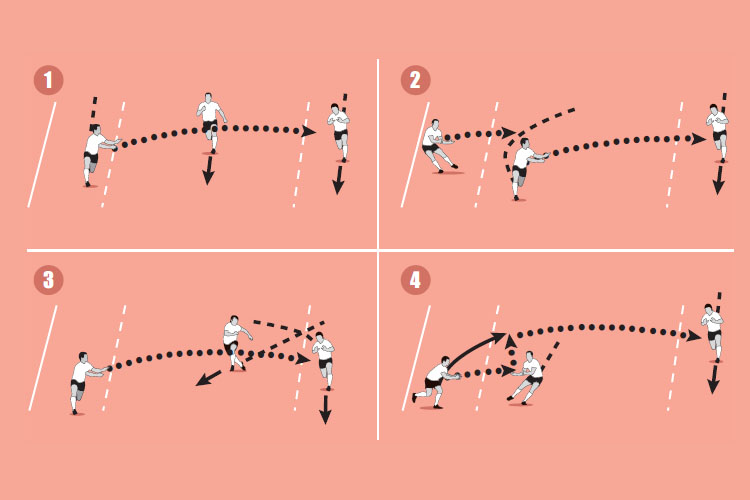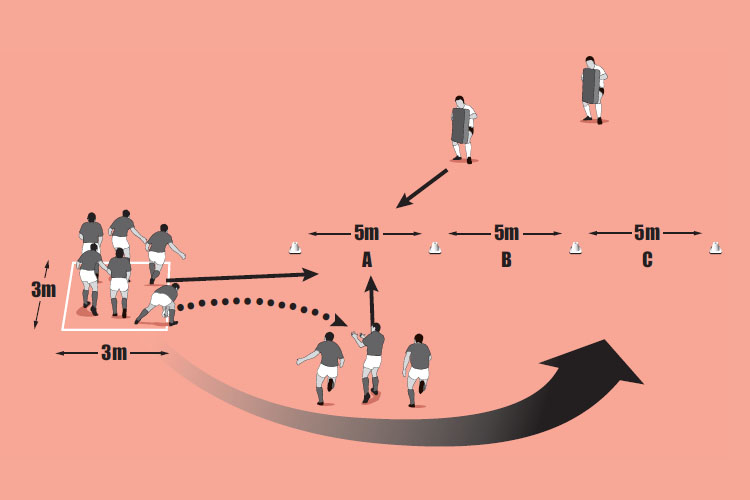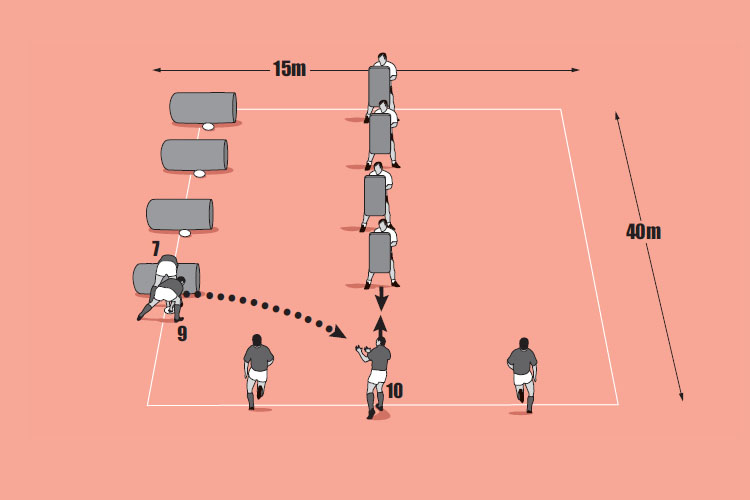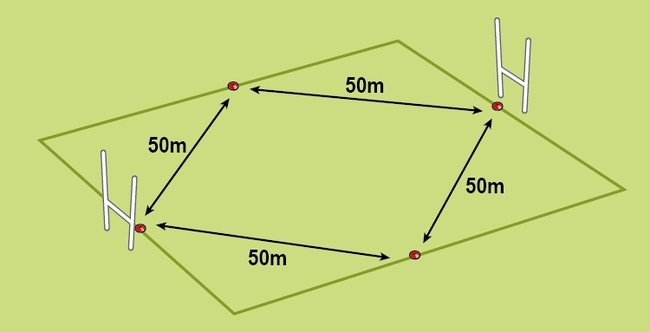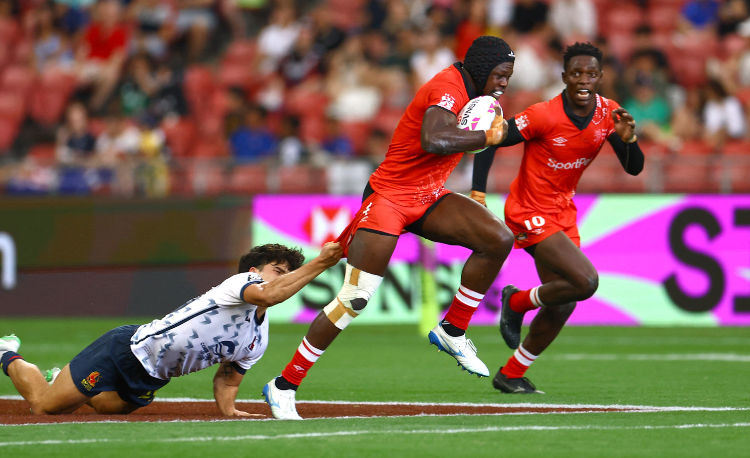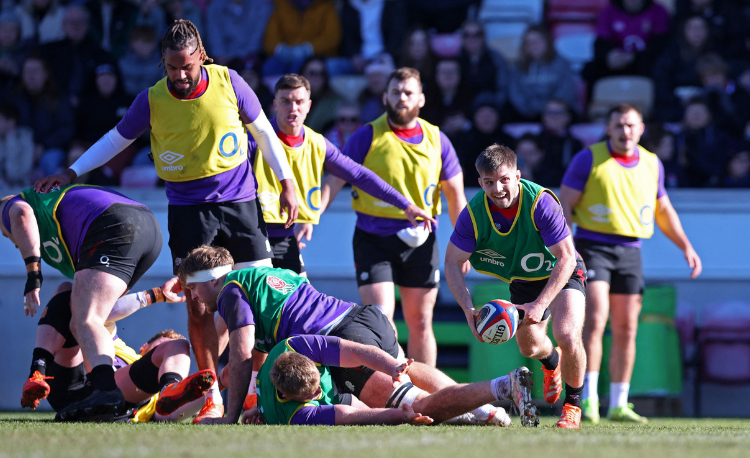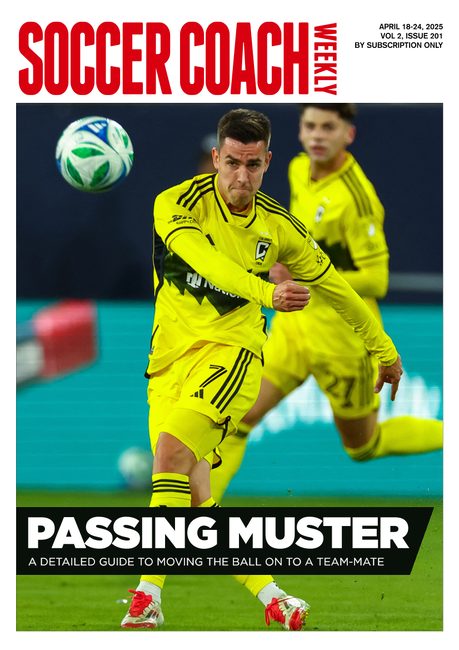Fitness and handling skills
If your team are struggling for fitness, then running them up and down the pitch is one way of improving their conditioning. A better way is to use a ball. This session uses some simple exercises to improve skills as well as lung capacity.
Warm up time: 7-10
Session time: 5-10
Development time: 10-15
Game time: 20
Warm down time: 7-10
What to think about
- My players don’t put 100% effort into the game. How can I improve this? Use a variety of incentives to improve players’ effort. For instance, the scoring team get to nominate an exercise for the conceding team to do. Alternatively, get the players to encourage each other to work harder, putting the onus on the team rather than you.
- My players’ skills get worse very quickly as they get tired. What can I do? Always encourage good technique as this provides a focus for the players and helps them forget the pain of improving their fitness. Make sure players work at full pace for each exercise but tell them that they will get a rest at regular intervals. The skills will improve in time, but not necessarily in this session.
set-up
- Put in the maximum effort to all exercises.
- Concentrate on performing the technical aspects well.
- Recover quickly if a ball is dropped or a mistake is made.
What you get your players to do
Split your team into groups of three with a ball, each group working from a touchline. The ball carrier runs out and gives a pop pass to the next player running on at pace. He then joins the end of the group and the exercise continues across to the other touchline. They put in maximum effort and then rest for thirty seconds at the far side before working back. You can change this rest period depending on their success rate.Development
Change the skill the players are practising:- The ball carrier falls to the ground and pops the ball off his chest to the next player.
- The ball carrier turns and sets himself in a strong position, then pops to the next player. Or this player can rip the ball away.
- The ball is put down and the next player has to pick it up.
Related Files
Game situation
Play aerobic touch on half a pitch. All touches are two handed. When a defender makes a touch, they run to their own line, round a pole or cone, before rejoining the game. All the other defenders get back three metres at every touch. The attackers have five touches before the ball is turned over. If defenders are offside or attackers make a mistake they perform an exercise (for instance press ups) and then rejoin the game. To score, every attacking player must be within five metres of the try line.What to call out
- “Get yourself quickly to the back of the group – “recycle” yourself”
- “Take a big step to the side before you pass”
- “Run on to the ball at pace – imagine you are breaking a tackle”
- “Use soft hands to pass the ball”
Newsletter Sign Up
Coaches Testimonials
Subscribe Today
Be a more effective, more successful rugby coach
In a recent survey 89% of subscribers said Rugby Coach Weekly makes them more confident, 91% said Rugby Coach Weekly makes them a more effective coach and 93% said Rugby Coach Weekly makes them more inspired.
Get Weekly Inspiration
All the latest techniques and approaches
Rugby Coach Weekly offers proven and easy to use rugby drills, coaching sessions, practice plans, small-sided games, warm-ups, training tips and advice.
We've been at the cutting edge of rugby coaching since we launched in 2005, creating resources for the grassroots youth coach, following best practice from around the world and insights from the professional game.
